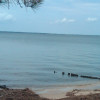what is a good off page optimization in SEO?
Good off page optimization are submit your website in quality sites. After penguin update google not like the quantity of work, they only likes quality work. So quality is main in SEO off page.
and diversify those links to quality sites. Optimize for the user, not the search engines
The good news is that if you're writing on a site like Hubpages that gets crawled often, you actually don't need any off-page SEO to rank. You need good on-page SEO.
It's what's ON your page that's most important:
-- focused on one topic
-- useful, effective, covers it well
-- uses the specific language that your readers use to search for the topic
-- includes links to useful, relevant tools, resources, or related content that is helpful or interesting to readers
-- well-written, well-organized, engaging
--Answers a question, solves a problem, or fulfills a reader need -- even if that need is simply, "entertain me."
Once you've gotten comfortable incorporating those on-page SEO factors, then, sure, try your hand at some off-page SEO. But I personally wouldn't recommend using social media for backlinking.
To quote an SEO industry professional from 2008:
That was in 2008, and it's even more true now. (The rest of the post is even more abrasive, but has a lot of wisdom nonetheless.)
Guestbook link-dropping is a personal pet peeve of mine. The main thing we accomplish by dropping links in guestbooks is to antagonize other experts who write in our niche so that they won't link to us and won't visit our site.They certainly won't let the link stand, so why annoy them? Or, worse, clumsy guestbook link-droppers target unmoderated, unrelated websites, which Google's Penguin update is going to penalize as link spam.
But here's a few off-page SEO practices that really may help and won't honk off the very people whom you want to visit your site:
-- Cross-link your OWN content: links from different pages on the same site, or links from pages you've published on other sites. Only link to your own content if it's relevant to the topic at hand and useful to your readers. For example, if I'm writing on the Mars Curiosity Rover, then I'll link to my old page about earlier Mars missions. Search engines are trying to reward relevant content that matches what their users are looking for, so try to link to relevant content that your readers might be looking for.
-- Use Hubpages Groups! Create groups on the topics you write most about in your profile settings. Then, when creating a new hub in that niche, choose the groups tab hidden in the sidebar near "summary" and pick its group. This immediately establishes two crosslinks, to the next and previous hubs in the group.
-- Claim your Google authorship. Do it now. Glen Stok and I both have tutorials on Google Authorship for hubpages...Google it. Those tutorials will show you why this is important.
-- Check your old hubs' traffic stats to see what search terms bring traffic to them most often. Then SEARCH for those terms in Google and see how your hub looks. (Google site:yourname.hubpages.com search term to find it). Look at the excerpt that Google displays for your hub. Is it well-written? Engaging? Does it show that the page covers search term? That excerpt is the "bait" that will draw Google users to your site. You have one second to make a good impression ... make it count.
-- Set up a page somewhere -- your own website, Google Plus, a Facebook Fan Page (for companies and businesses), even Hubpages -- which is the virtual equivalent of an online business card or elevator pitch. On that page, introduce yourself and link to your best work and your other profiles. Link to that "virtual business card" whenever people or website profiles ask for your main website's address.
-- Establish yourself on some social media site like Twitter, Facebook, Google Plus or Pinterest and get known. The best use of social media is not for direct SEO or backlinking purposes, but so that people will find out about you and learn what you write on. Make a name for yourself, and they'll check out your work. If your work knocks their socks off, then they may share it, or even link to it from their own sites. But remember, you've gotta learn what each social media site is for. They're not primarily for self-promotion, but for communication, responding to others, and sharing things you find interesting. If you only find your own work interesting, chances are, nobody will find YOU interesting.
-- Remember that wherever you post, you're establishing a reputation for good or ill. Take the time to use good English and complete sentences (as best you can on a site like Twitter with a character limit).Deleted
It would be if it were accurate. First, that blog post wasn't correct in 2008, and definitely isn't now.
The on-page SEO tips are good writing tips, not SEO tips. They are not one and the same. Good writing is just as important, if not more important than SEO, but that's not the question that was asked.
For the most part, the off-page SEO tips also aren't off-page SEO, at least the first four aren't. Again, good idea's, but not off-page SEO.
One of my blogs was started within a day of my HubPages. On HubPages, I don't build any back-links, mostly because HP is part of my back-link package for my blogs. The particular blog that I started at the same time, that has quite a bit of the same topics for content, is growing 10 times faster than my HP, and my other two main blogs are growing faster than that one. If you think all you have to do is write good content then leave it, you are going to be in for a rude awakening.
http://sapper.hubpages.com/hub/SEO-to-use-or-to-not-use
That is my latest hub that I posted a few days ago. The main reason I'm linking it here, is for the picture. That is my impressions over the past month, through 2 Panda updates when quite a few people saw a dip in traffic. The picture says two things, I know what I'm talking about, and that back-links are important. The bottom is my HP's, the other three are a few of my blogs that I actually build back-links for.
2008 is 4 years ago. SEO is *NOTHING* like it was in 2008.
Notice how that article doesn't reference anything from 2004? There is a reason for that.
SEO is always changing. This is a well known fact. The fact that you honestly just quoted a 2008 article to give SEO advice means that you have a lot to learn about SEO yourself.
And to prove this point - we will talk about social media and SEO.
Google has over the past year emphasized the role of social media in their algorithms. The update just this last month, they said that social media is now *more important than ever* in Google searches.
Talk to any SEO expert about their methods, and social media will surely be a part of it. "Private blog networks" utilize social bookmarking and Facebook likes into the system.
This isn't difficult information to find. Just Google "social search rankings" or "google social" or anything along those lines, and you will find TONS of information *post*-2008 that distinctly contradict your advice.
I don't mean to sound harsh - but honestly, you shouldn't give people advice if you really don't understand the issue yourself, that's how people get led down the wrong path and get discouraged.
To summarize...YES use social media to promote your work. YES publish your work on Twitter, facebook, and social bookmarking. Don't make it look spammy (bookmark other things that interest you as well), but do NOT overlook it. If you've spent any time "link building" and haven't even liked your article on Facebook or pinned it on Pinterest, etc...then you're going about it the wrong way. Social first - backlinking after.
And most importantly, NEVER EVER EVER take advice from 2008. By all means, read old articles (You can learn some elementary SEO basics, and find old ideas that may help spark new ideas) - but the DO's and DON'Ts from then are very different from now.Quality is always the main thing off page optimization. Check the websites before you submit your website, Is it not ban by google, To check google ban the site or not simply check the website is cache by google or not. How many pages are index. If google cache the website & index almost all pages then this website is good.
Related Discussions
- 10
What are the general SEO techniques followed around hubpages?
by mistu4u 10 years ago
No theory, I want to know practically what course of action can really increase the traffic to my article i.e. what actions really SEO the articles? Fellow hubbers share your experience.
- 191
Philosophical Crossroad: Team Write Vs. Team SEO
by Glamorously Jacob 13 years ago
I'm officially now my first month into HubPages and loving it; however, I'd like to share with the community some of the observations I've made in the first 30 days.The OpportunityLet me start by saying that I think there is plenty of opportunity for writers here, even post-panda, to become...
- 14
What is on page SEO and how can it be done for hubs I write?
by Shadaan Alam 12 years ago
What is on page SEO and how can it be done for hubs I write?I know well about off page seo, but little about on page seo, can my fellow hubbers please tell me about it? Is it just keyword spreading throughout the article or is it more than keywords.
- 13
I give up! SEO question that I can't find the answer to...
by girly_girl09 15 years ago
I hate asking for SEO advice because I feel that I learn more when I find the answer for myself. I remember reading a blurb about this somewhere but every time I google related keywords I come up with websites trying to sell me high-PR links. The frustration has set in! My main reason for asking...
- 26
On Page SEO - Keywords in BOLD
by Wesman Todd Shaw 11 years ago
One thing that I've noticed in my traffic stats is that one particular hub about a particular acoustic guitar - seems to be doing better than other hubs about what I would think would be guitars that are more sought after.So I looked at the hub that is doing so well, and tried to figure out why...
- 24
My hub is no longer appearing in google.
by Sage Williams 15 years ago
I hope this is in the right forum. I am trying to figure out what went wrong with my hub. The second day I was on the first page of google. I realized that I hadn't put the right title, I meant to change it before I published it and had forgot. so I went back and change the title....













